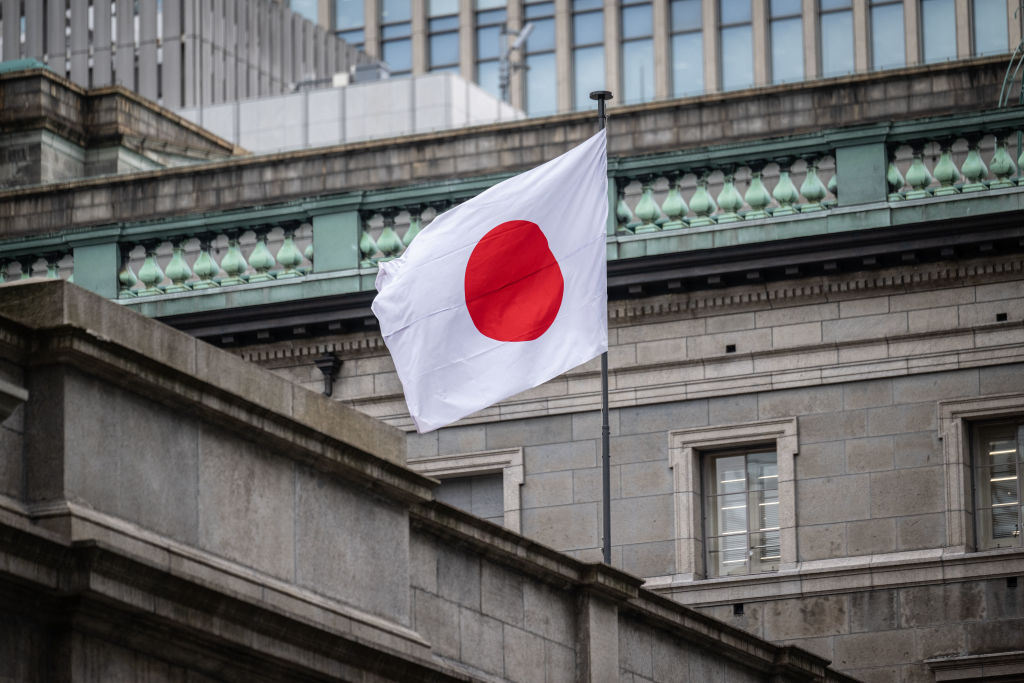Japan has become another piece of fodder for the West’s culture wars. After a recent visit with his family, talk-show host Jimmy Kimmel praised the country for its clean toilets and lack of litter, only to be lambasted by right-wing pundits such as Ben Shapiro, who accused the comedian of having leftist beliefs that are completely at odds with what makes Japanese society so safe and orderly. Namely, Shapiro argued, Japan is a closed-off nation, unpersuaded by arguments to allow mass migration, and its homogeneity and “unique culture,” along with a strict legal system, help sustain this “package deal.”
During the height of the Syrian refugee crisis nearly a decade ago, amid intense international criticism, Japan refused to accept asylum seekers from the Middle East. Last year, its government recognized only 303 refugees, still a record high. Japan has been more generous in regard to the war in Ukraine, with around 2,600 individuals classified as “evacuees” accepted as of February 2024, but most do not hold official asylum status. Roughly 2,000 currently remain in the country, with the majority hoping to eventually return to Ukraine.
But in March, just as Shapiro was praising Japan’s isolationism, its government announced that it projects the arrival of more than 800,000 skilled workers over the next five years to address the country’s acute labor shortage in industries such as construction and farming. This is but the latest part of Japan’s changed approach to immigration, dramatically increased over the past decade, as they hope to import a solution to their long-term deflationary economy and crippling demographic issues. Of the country’s population of 125 million, there were around 3.1 million foreign residents as of 2022, with a 660,000 increase from 2013 to 2019.
Japan is lost! pundits may cry. The country is doomed! Nihon gone woke! The terminally online right raged on Twitter, with one account — with more than 200,000 followers — claiming that Japan was already in the midst of “importing the third world.” Attached footage, of trash on the streets of Kyoto’s bustling Gion district, was its proof of the nation’s supposed descent into multicultural destruction.
The problem? The messiness and litter shown in the photo were the result of a recent surge of tourism, not an influx of new immigrants. Gion is already taking measures to restrict overtourism by banning travelers from certain geisha alleys, while it is practically certain that city officials will enforce stricter anti-littering laws as Kyoto prepares for the annual summer festivals that attract over a million people every year. If you take a closer look, Japan isn’t repeating the errors of Western mass migration, but learning from them. Fumio Kishida is no Angela Merkel.
The 800,000 number is only an estimate, not an invitation for foreign workers to arrive en masse. Under this program, there are two types of visas. The first imposes a maximum residency stay of five years, while the second allows workers to extend their stay, invite their families and renew their visas. Acquiring a Type 2 visa requires an additional skills test. The number who’ve actually arrived is around 208,000. Of those, only thirty-seven people have Type 2 visas.
To repeat: thirty-seven people out of 208,000 foreign workers. That’s less than 0.0002 percent, hardly the “invasion” that Western pundits say will take over Japan. Even the larger new number is unlike immigration to Western countries, as the program is specifically aimed at skilled workers, not economic migrants or refugees, and all candidates must display the Japanese language ability needed for communication in their fields. While the number of skilled workers entering Japan is expected to increase, only a very small portion will be awarded the Type 2 visa which provides a path to permanent residence.
Apart from the government’s selectivity compared to countries like the United Kingdom or the Netherlands, Japan has multiple cultural and societal bulwarks in place which prevent immigrants from overriding the local populace. You typically need to learn the Japanese language to a high level to have a successful career, which causes most to leave the country after only a few years if they cannot crack it. And language is only the first step. Japanese society remains highly dependent on in-group and out-group social dynamics, and a foreigner hoping to find their place in this system must adapt to the local customs or be excluded entirely.
Some Western observers say that an increase of foreigners will lead to the destruction of Japanese laws and a radical change to the country’s education system, but this too is unlikely. Only citizens can achieve high political power in Japan, and the naturalization process is daunting. Japan does not recognize dual nationality, and most foreigners are unwilling to renounce their native citizenship. There have been a handful of Japanese politicians of foreign birth or ancestry — the Finnish-born Marutei Tsurunen, for example, and Arfiya Eri, born in Japan of Central Asian parents — but achieving such status requires full cultural assimilation.
Most long-term foreign residents of Japan realize that a successful and happy life entails becoming a valued member of their local communities, even if they never become citizens. While it can be more difficult to make personal connections in large cities such as Tokyo and Kyoto, foreigners who find themselves in smaller rural areas are typically married to native Japanese, have children and are regarded by their neighbors as upstanding residents. Getting to this stage requires many years of hard work and career-building, which goes back to the important social relations that remain an essential aspect of Japanese society.
Japan has a long history of interest in foreign culture; the country typically takes what it finds useful and discards what doesn’t fit with its native customs. Go to the most remote countryside town and you’ll see a McDonald’s, a Nike store and an Italian restaurant. Yet Japan remains Japanese.
There is a common misconception among Westerners both on the left and right that Japan is a racist or xenophobic country. But in actuality, Japan is welcoming of those who are committed to assimilating, learning the language and contributing to society. Scholarship programs such as those sponsored by the Ministry of Education, Culture, Sports and Technology give a full ride to graduate students from abroad. During the Covid-19 pandemic, foreign residents were given the same stimulus payments as Japanese citizens in addition to the same access to vaccines. National health insurance also applies to everyone, whether they hold Japanese nationality or not. Permanent foreign residents such as Megadeth guitarist Marty Friedman, boxer Bobby Ologun and television host Dave Spector are part of a long history of gaikokujin tarento — famous foreigners who are household names due to their high language proficiency and many years in show business.
The difference between Japan and Western countries, however, is that there is much more scrutiny placed on illegal immigration and the backgrounds of foreign arrivals. Japan does not face the same problem the United Kingdom, with arriving boats carrying thousands of illegal migrants, or even the same as closer neighbors like Australia. Compared to the over 10.5 million unauthorized immigrants who reside in the United States, Japan reports roughly 80,000 foreigners who are classified as illegal overstayers. In 2022, it was reported that less than 6,500 illegal foreign workers had entered Japan and those numbers are decreasing. Foreign residents who overstay their visa’s time limit face fines, prison time and being banned from entering Japan for five years or more.
Despite the government’s push to attract more skilled workers, actual immigration laws are getting stricter, with Japan ignoring criticism from the UN’s Human Rights Council over its decision to push for deportation of candidates who fail to achieve refugee status three times or more. A Cabinet-approved bill from 2023 accelerated the deportations of illegal immigrants and additionally stipulated that those convicted of crimes and sentenced to three years or more cannot remain in the country. The past decade has shown a consistent pattern of the Japanese government’s caring little for the opinions of foreign organizations on how it handles immigration; its priority is the integrity of its own laws.
Immigration has so far been a small problem for Japan compared to other countries, and given the poor impression often left by ill-mannered foreign tourists, the native population is likely to double down in defending their society from rapid cultural change. While long-term foreign residents generally follow the laws, the rapid increase of travelers from abroad, arriving in large numbers and annoying locals, is likely to be a continuing issue. Streamer Johnny Somali infamously caused an uproar on both sides of the Pacific last year for harassing Japanese people, causing frequent public disturbances and eventually being arrested for trespassing. Viral social media posts of other tourists displaying poor manners on public transportation have only added to local frustrations.
But for those who learn the language, have marketable skills and are dedicated to becoming tax-paying, assimilated members of society, Japan is largely welcoming. With beautiful sites, low crime, generally good healthcare, effective public transportation and a cohesive social structure, Japan has much which is the envy of the world. But you must follow the rules to stay — and those who do not are welcome to leave.
This article was originally published in The Spectator’s July 2024 World edition.


























Leave a Reply